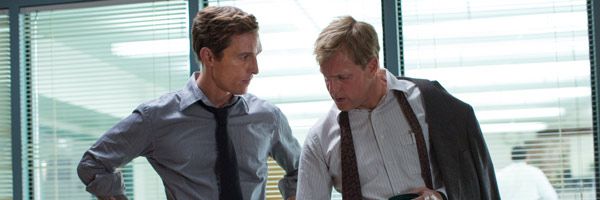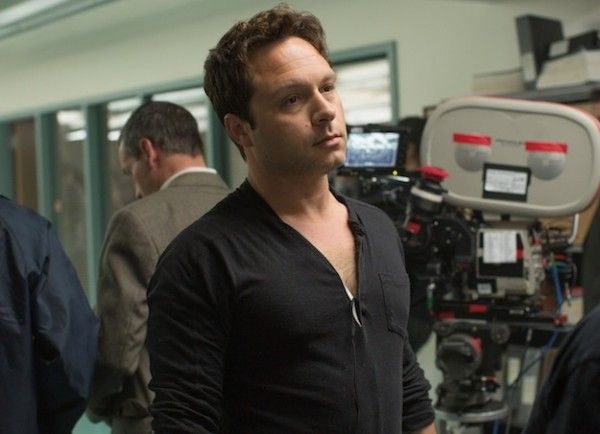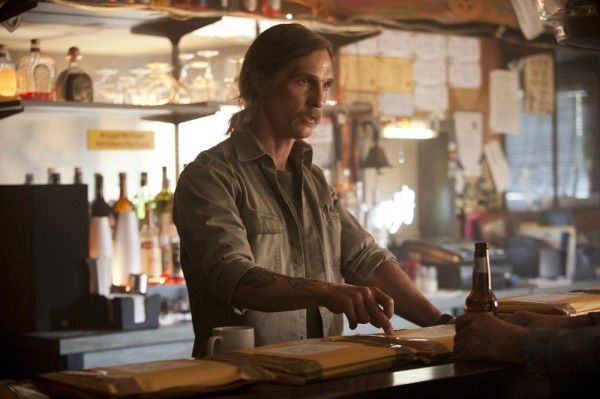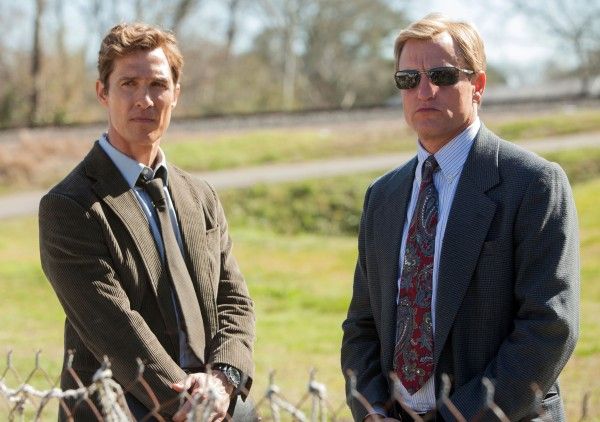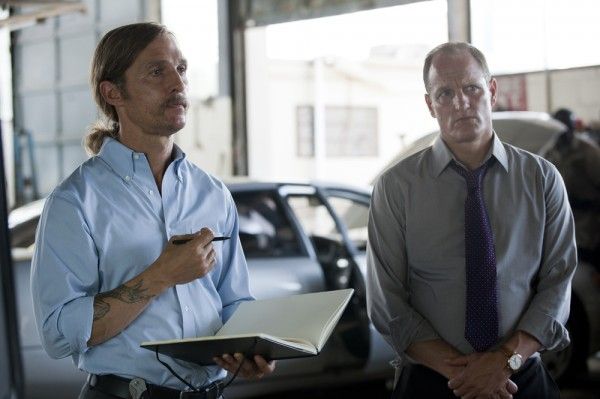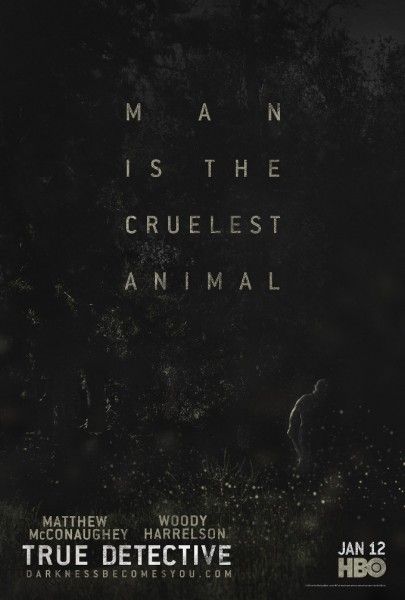HBO’s stellar True Detective came to a close last night with its first season finale, which was essentially a series finale given that the show is an anthology series and the finale closed out the story of Matthew McConaughey’s Rust Chole and Woody Harrelson’s Marty Hart for good. The finale appears to have had a bit of a polarizing reaction on its audience, with those deeply invested in the mythology and clue-hunting coming away a bit disappointed and those who were more engrossed in the character study aspect of the series feeling fulfilled. Personally, I find myself in the latter category as I thought writer Nic Pizzolato and director Cary Fukunaga delivered a stellar finale that stuck the show’s primary focus: the characters.
While many are still trying to piece together what was and wasn’t answered, Pizzolato took part in an illuminating post-mortem on the finale, discussing the concluding chapter of the show and other alternate endings he considered. The scribe also provided a tantalizing tease about season two, which will “keep being strange” and involve "the secret occult history of the United States transportation system." Read on after the jump, but beware of full spoilers for the True Detective finale.
While speaking with HitFix in a lengthy interview on the finale, Pizzolato admitted that he considered alternate endings that would maybe have been a bit more in line with what people were expecting, but he ultimately did what felt right for the characters:
“For me as a storyteller, I want to follow the characters and the story through what they organically demand. And it would have been the easiest thing in the world to kill one or both of these guys. I even had an idea where something more mysterious happened to them, where they vanished into the unknown and Gilbough and Papania had to clean up the mess and nobody knows what happens to them. Or it could have gone full blown supernatural. But I think both of those things would have been easy, and they would have denied the sort of realist questions the show had been asking all along. To retreat to the supernatural, or to take the easy dramatic route of killing a character in order to achieve an emotional response from the audience, I thought would have been a disservice to the story. What was more interesting to me is that both these men are left in a place of deliverance, a place where even Cohle might be able to acknowledge the possibility of grace in the world.”
Since the finale seemed more concerned with where Cohle and Hart end up psychologically and emotionally than with wrapping up the case in the big, neat bow, Pizzolato was asked how much the serial killer storyline actually mattered to the overall story:
“I don't think it was an empty vehicle, is what I guess I would say there. I don't think it could have been just anything that these guys were working on. I think it's relevant that the person they're chasing is both the victim of an historical evil and the perpetrator of an historical evil. The killer in that way is a physical articulation of cultural aspects that have sat behind the scenes, even informing that polluted landscape that provides so much of the background. If you go from the idea of something being in its natural state and then being perverted, and that this particular villain, for lack of a better word, is a killer of women and children, and his methodology is intimately tied to a mythology of belief — I do think if you want to go back and watch 7 and 8, there's enough given in the fragments that everyone states, there's enough that you can actually piece together historically, how Sam Tuttle in the early '30s led to Errol Childress in the first decade of the new millennium.”
For those hung up on the mythology, though, Pizzolato says (and I agree) that there are enough pieces of the puzzle threaded throughout all eight episodes that you can put together a pretty clear picture of the overarching “cult” and its reach:
“There's the men in the video, and there's about 10 of them. Then you can begin to look at that as if that cult began to disintegrate shortly afterwards, and then there were always revenants existing on a local level. If you track the name Childress, you realize Sheriff Childress was the sheriff when Marie Fontenot disappeared, an Officer Childress was attending to Guy Francis in 2002 when he committed suicide. The conspiracies that I've researched and encountered, they seem to happen very ad hoc: they become conspiracies when it's necessary to have a conspiracy. I think it would have rang false to have Hart and Cohle suddenly clean up 50 years of the culture history that led to Errol Childress, or to get all the men in that video.”
Indeed, as Hart says to Cohle in the finale, they’re never going to get them all, “this isn’t that kind of world.” What Pizzolato excelled at in the entirety of the series was providing a realistic view of what detective work is actually like, and in reality it’s rare that we ever get the full story of any large-scale or disturbing crime.
As for season two, Pizzolato is currently working on the scripts but it’s hard to imagine any world in which HBO doesn't officially order another season given how wildly popular this installment of True Detective was. The scribe previously revealed that there will likely be more than one director for season two for logistical reasons, and he told HitFix that the reaction to season one has affected his plans for season two in a significant way:
“[The reaction to season one] has informed exactly one thing. It's that I realize I need to keep being strange. Don't play the next one straight.”
Pizzolato went one further and offered the first real details about what kind of story he’ll be telling with the next season:
“This is really early, but I'll tell you [it's about] hard women, bad men and the secret occult history of the United States transportation system.”
You can head over to HitFix to read the full interview, in which Pizzolato discusses the weird speech patterns of “the spaghetti monster” and addresses some of the theories tying True Detective to The Yellow King. For now, though, I’m quite satisfied with how season one concluded and I can’t wait to dig into an all-new story with season two.

